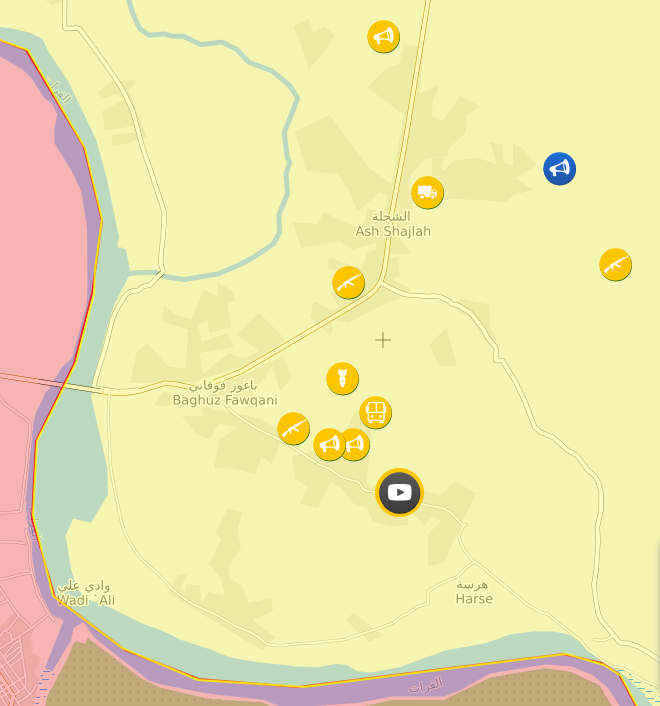Remember that Houston no-knock narcotics raid gone wrong I mentioned a few weeks ago? The one where five policemen were shot and two homeowners were killed?
It’s looking even worse now:
An internal Houston police investigation has uncovered alarming deficiencies in the department’s narcotics division that led to an allegedly falsified search warrant used to justify a southeast Houston drug raid last month that killed two Pecan Park residents and injured five officers, according to documents obtained Friday by the Houston Chronicle.
In a hastily called press conference, Police Chief Art Acevedo said Gerald Goines, the veteran narcotics case agent at the center of the controversy, will likely face criminal charges. The internal investigation revealed he allegedly lied about using a confidential informant to conduct an undercover buy at the residence on Harding Street. The buy led to a raid and a fatal gunfight at the house the next day, killing Dennis Tuttle, 59, and Rhogena Nicholas, 58, and injuring five Houston Police Department officers.
The debacle, which has infuriated officers across the department and which critics say has damaged public trust in HPD, and infuriated members of the department’s rank-and-file, also prompted Acevedo to order an “extensive audit” of the 175-member narcotics division and an examination of Goines’ recent cases.
The Fuzzy Dunlop of the post title refers to a non-existent informant on The Wire who was ginned up out of thin air to hide the fact police on that show were using a remote microphone (taken from inventory without permission) hidden in a tennis ball (hence the name) to nab a particularly elusive drug-gang.
A deeper look at the warrants involved in the Houston raid turned up more lies:
A confidential informant didn’t buy drugs at the southeast Houston home where a botched police raid turned into a deadly shootout last month, according to a new search warrant.
The shocking new information was revealed today after ABC13 obtained two of several search warrants executed as part of the ongoing investigation following the deadly raid.
The search warrant clearly shows the initial information used to obtain the no-knock search warrant involved a number of lies.
In the original warrant obtained on Jan. 28, the lead case agent, Officer Gerald Goines, wrote that a confidential informant bought heroin at the house the day before the drug raid. The informant also allegedly saw heroin and a weapon, which appeared to be a 9mm handgun, as he was buying the suspected drugs at the house.
In that warrant, the informant allegedly returned to Goines with a brown powder substance, telling him that it was called “boy,” which is slang for heroin. The confidential informant also said the substance he allegedly bought at the home was packed in a large quantity of plastic baggies.
All of that information was written in the search warrant, leading a judge to find probable cause and signing it.
Rhogena Nicholas, 58, and Dennis Tuttle, 59, were both killed in the raid at their home at 7815 Harding St. Four HPD officers were shot and a fifth officer injured his knee.
But on Friday, in the warrants executed by officers investigating the botched raid, it is clear that no confidential informant ever went to the house on 7815 Harding. In fact, all informants who worked with Goines told investigators they did not go in that home.
“We know we’ve had a criminal violation already,” Chief Acevedo said about the internal investigation of officers involved in the botched raid.
Investigators returned to Goines for the names of more informants, who had all worked for Goines in the past. They all denied making a buy for Goines at the home. They also denied ever buying drugs from Nicholas or Tuttle.
The warrant shows that two bags of heroin were found in Goines’ city vehicle.
So it turns out that two people died and five cops were shot in a no-knock raid of an alleged dealer’s house where no significant narcotics were found on information provided by, well, possibly no one. Something obviously stinks here.
No-knock raids used to be relatively rare things, about 3,000 a year nationwide in the 1980s, a number that swelled to over 40,000 in 2006, a side effect of the War on Drugs.
It’s long past time to impose far more stringent requirements on no knock raids, or even eliminate them entirely. Indeed, beyond such unlikely scenarios as “there’s a known cop-killer with a gun” or “a Islamic terrorist house filled with suicide vest explosives” or “a cartel boss with twenty henchmen with automatic weapons,” it’s hard to conceive of conditions requiring no-knock raids. A mere street-level bust certainly isn’t one of them.
No American citizen should die at the hands of police based on the false say-so of Fuzzy Dunlop.



